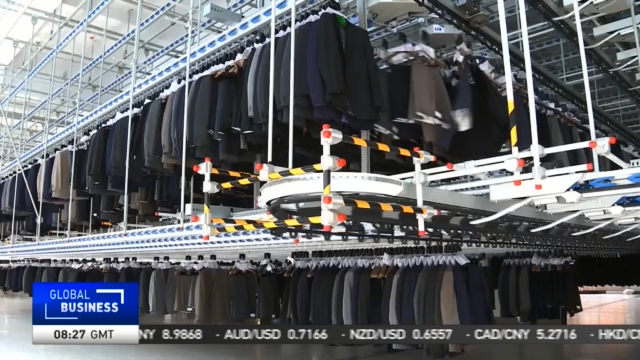
17:07, 17-Sep-2018
Dalian Textile Fair: What does trade war mean for Chinese fashion?
Updated
16:03, 20-Sep-2018
02:04

The Dalian International Garment and Textile fair is seen as a barometer of the fashion industry. Guan Yang looks at how the China-US trade dispute has affected suppliers.
With tariffs looming on 200 billion US dollars worth of Chinese goods, Americans' favorite apparel may soon cost more. Many in China's fashion industry are concerned. At the Dalian International Garment & Textile fair, manufacturers like Liang Zhouye's company - specializing in swimsuit fabric -- are looking to avoid extra taxes on their exports to the US.
LIANG ZHOUYE, SALES MANAGER GUANGZHOU XINSHENG SWIMSUIT FABRICS CO. "As for the American market, we are trying to relocate some of the production facilities to other countries and export the finished goods from there to avoid possible tax increases."
Liang's idea, however, won't work for all garment and textile companies in China.
For instance, products like furs and leather still heavily rely on local materials.
NIE CHUNRONG, VICE PRESIDENT DALIAN FURS & LEATHER ASSOCIATION "We have more than 1,100 member companies in our association. As for the trade war, almost all of these member companies are showing a tendency to focus more on domestic sales, in order to balance out possible losses caused by tariffs."
Dayang, a company founded four decades ago by 13 housewives in Dalian's rural area is now proud of their global dominance in the custom clothing industry. Just like many other garment factories in China, they started from being the "OEM" - a term for low-cost and highly flexible suppliers. However, their managing director tells CGTN those days are gone.
HU DONGMEI, MANAGING DIRECTOR DA YANG GROUP, DALIAN "We are negotiating with our foreign partners to withstand the extra overhead caused by possible tariffs. But we remain confident in our sales in the US, because in this industry, efficiency and quality are our strong winning points."
So what does the trade war mean for the garment companies? Well, with a global supply chain widely spread across international markets, any barriers to the movement of goods could be detrimental. GUAN YANG, CGTN, DALIAN.

SITEMAP
Copyright © 2018 CGTN. Beijing ICP prepared NO.16065310-3
Copyright © 2018 CGTN. Beijing ICP prepared NO.16065310-3